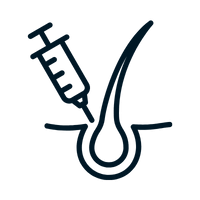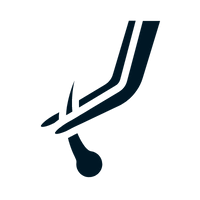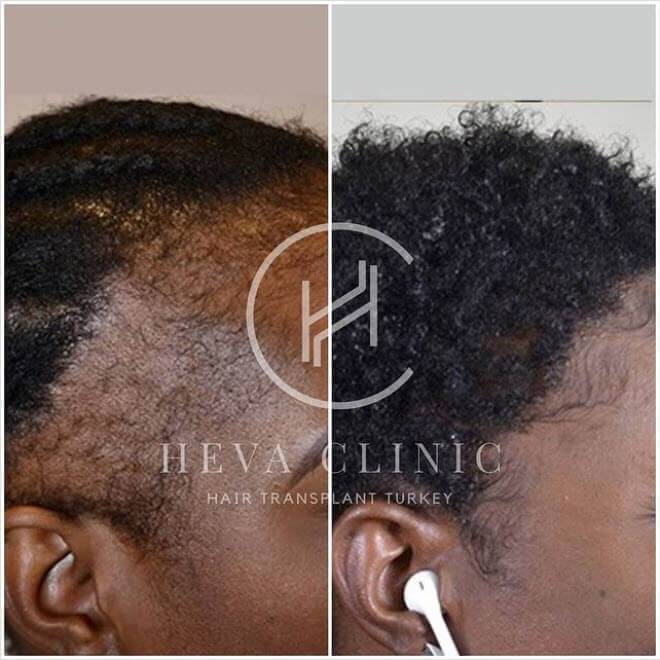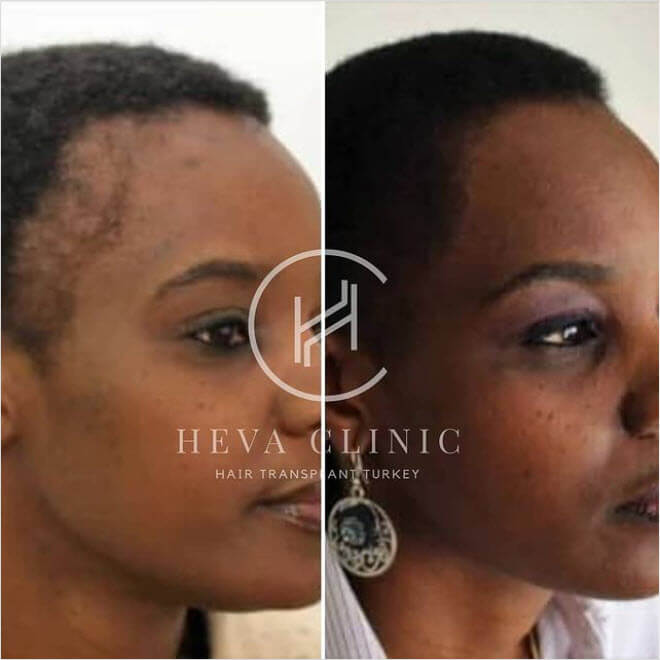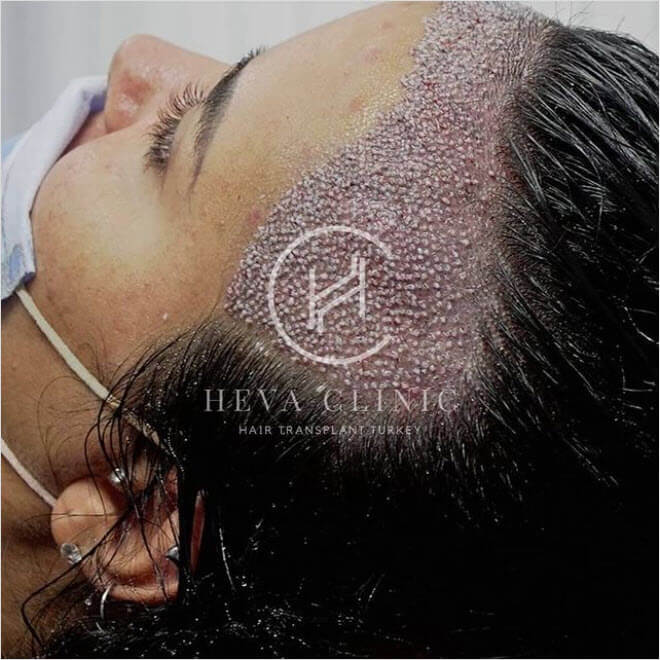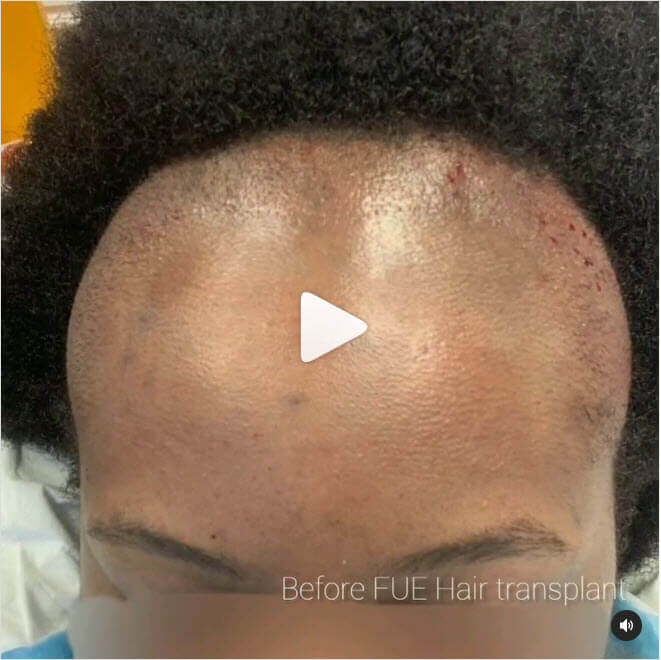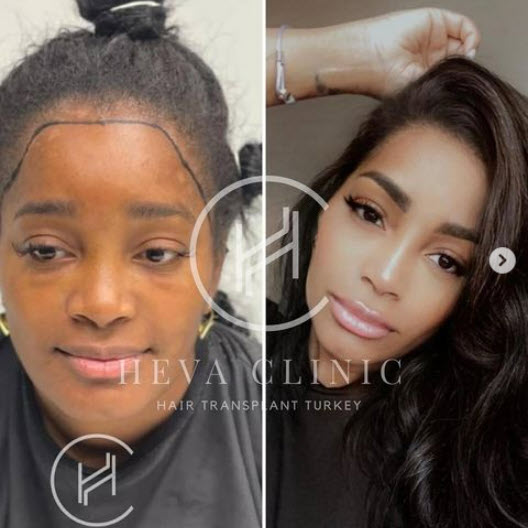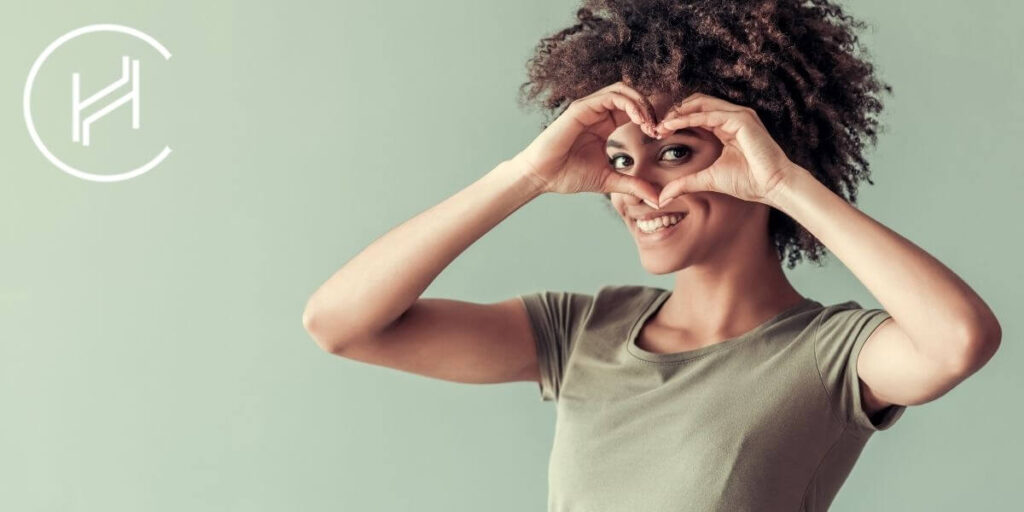
Despite being one of the most innovative hair inventions to hit the market, there are several reports about the potential of relaxers to cause hair loss. But is this true? Do relaxers damage hair?
Of course, relaxers have made so much impact since the early 20th century by helping those with chaotic curly hair. However, these hair products contain heavy chemicals and it’s important to know all their side effects before using them. This article achieves that by examining the causes of hair loss from using relaxers and how you can avoid the side effects. Read on to find out more about this.
Potential hair loss due to relaxer
Relaxers have been known to improve hair condition; however, they could also lead to hair loss. How does this happen? Hair cuticles are held together by hydrogen and disulfide bonds. These are one of the strongest naturally occurring bonds in the world, which need to be broken down and altered to change their texture. This will require strong chemicals like sodium hydroxide (lye), ammonium thioglycolate, and sodium thioglycolate, which generate heat. So, when you relax your hair, the relaxers generate enough heat to break down the bonds in your hair a reset them to a straighter texture.
Despite this, there are few cases where these chemicals in the relaxer are too strong for your hair to handle. This happens mostly when you have soft hair or your scalp is sensitive, leading to hair damage from relaxers. Another case is where you leave your relaxer on for too long. When this happens, you might experience some unpleasant hair relaxing side effects like scalp burns or hair thinning after relaxing your hair. When this happens constantly over a long period, it might lead to hair loss.
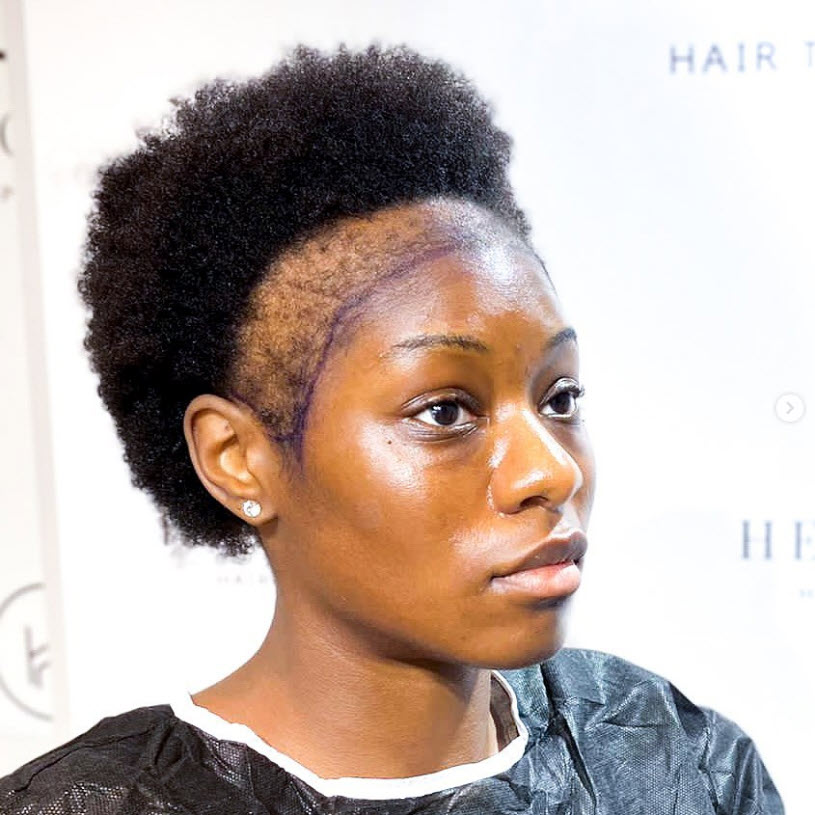
Do Relaxers Damage Hair?
Now that you know that hair relaxing may have unpleasant side effects, does this mean that relaxers are bad for your hair? Of course not! You can defy this status quo by applying a few measures to reduce the likelihood of hair loss or damage. This means that hair loss is not a conclusive effect of relaxers.
The major factor behind damaged hair from relaxers is the failure to use the products correctly. Surely, this might not be easy to achieve on your own, but it’s not the same for a hair expert. When you leave the application of the relaxer to an expert, you can avoid the hair-relaxing side effects and achieve your desired look.
On the flip side, you might decide to relax your hair at home instead. In this situation, don’t use a relaxer that is unhealthy or damaging to your scalp, especially if it’s sensitive. It’s easy to get damaged hair from the relaxer, so it’s best not to use a relaxer that is detrimental to your scalp, especially if it’s sensitive
Also, never keep a relaxer in your hair for longer than the prescribed period. This means that you shouldn’t get to the point where you feel a tingling or burning sensation on your scalp. Doing this defeats the lovely things the relaxer is supposed to do to your hair. Finally, try your best to protect your skin from contacting chemicals.
Causes of Afro/Curly Hair Loss
In most cases, relaxers aren’t the major cause of hair loss. Instead, the things you do to your hair before applying the relaxer cause hair damage. For example, scratching or double processing your hair using dye and relaxers can lead to hair loss and scalp damage. Another mistake people make before applying relaxers is loosening their hair on the day they plan to relax. Of course, this isn’t so bad all the time. But you might want to reconsider doing this if your scalp is soft and sensitive. Why?
Loosening a hairstyle requires you to put some pressure on your hair and comb your hair from time to time. Each pull places pressure on your scalp, leading to damaged hair from relaxers. So, it’s always best to loosen your hair a day or two before relaxing it to give it space to breathe. Another thing that causes hair loss from relaxers is leaving them on your hair for too long. In cases like this, it’s best to listen to your body and understand your hair type. You can look at our Afro Hair Types – The Complete Guide to find out your hair type.
You can also watch out for signs of scalp discomfort and long-term scalp tingling. This is an indication of negative relaxing side effects The chemicals might also not be compatible with your skin. If you still keep the relaxer on even though you are experiencing discomfort and tingling, it’s an invitation for serious burn and damage from relaxers. You might also get sores on your scalp following a relaxer session, in addition to the burning. That difficult situation may result in infection or permanent hair loss due to relaxer use.
Another cause of hair loss is dyeing and relaxing your hair simultaneously. Your hair and scalp can be severely damaged by the combination of lye in relaxers and peroxide in hair color. So, avoid relaxing your hair if your hair is already fragile, damaged, or bleached. Before you relax your hair again, wait a few months to allow your roots to grow. This prevents the relaxer from causing hair loss.
On another note, every relaxer product and its pH level is different, along with the appropriate time and use instructions. Regardless, no matter how long the chemicals are kept on your head, you may get sores due to a response to them. You might be allergic to the relaxer, or it could be of poor quality.
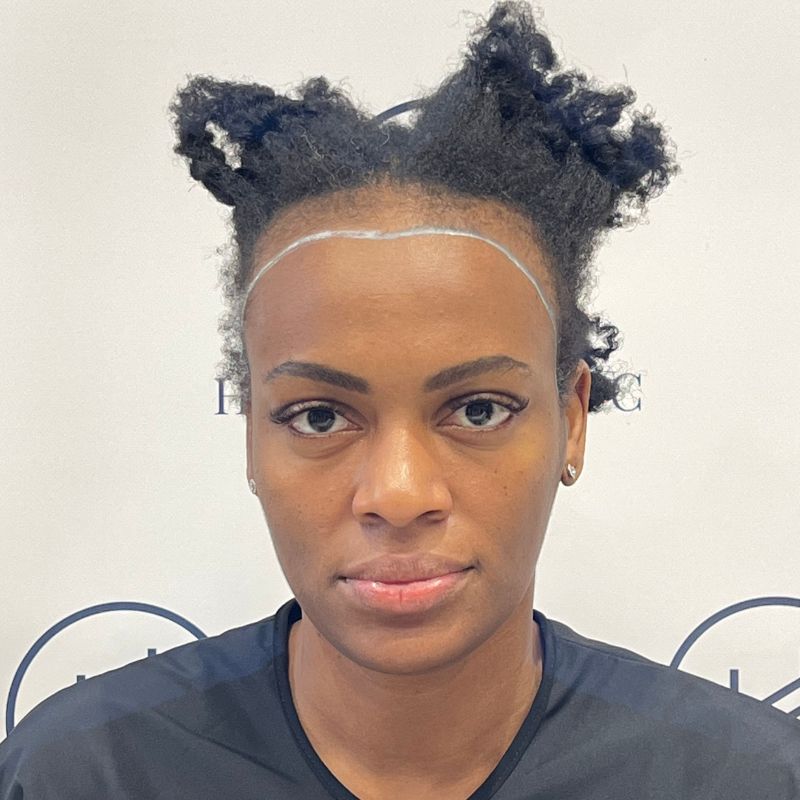
Besides relaxers, hair loss could be caused by other underlying factors. These include:
1. Tight Hairstyles and Poor Hair Care
The way you handle your hair determines its condition. Putting too much pressure on your hair by doing tight hairstyles or excessive hair styling could cause damaged hair from relaxers, leading to hair loss. This is a type of hair loss known as traction alopecia.
Another factor that might cause hair loss is the lack of proper care. Your hair needs good care to grow and flourish, so you must wash and condition it regularly. Another method to try is to avoid excessive hairstyling. Try to give your natural hair space to breathe from time to time and avoid tight hairstyles.
2. Medical Condition
Many medical conditions have also been responsible for hair loss in many cases. Some include hormonal changes during pregnancy or menopause, thyroid problems, scalp infections, etc. These conditions could be managed through proper medical care and treatment.
3. Heredity
Sometimes, the cause of hair loss is beyond your control, as it dwells in your family line. This could be from your parents or grandparents who are experiencing baldness. Another common cause of hair loss is aging, which is known as androgenic alopecia. So, if you keep experiencing negative relaxing side effects, you might want to check your family history. These conditions can be treated with medical treatments and proper hair care routines.
4. Medications
Hair loss could also result from certain medications for cancer, arthritis, depression, and high blood pressure. These medications affect the hormones that facilitate hair growth, leading to hair loss.
5. Stress
Going through emotionally shocking events could affect a person’s physical and mental health. One of the physical side effects such a person might be experiencing is hair loss. This type of hair loss is temporary. So, if you’re in this category, you can easily fix it by placing yourself in less stressful situations. Another thing to do is to try calming exercises and engage in activities that make you happy.
So, relaxers do cause hair loss, but not absolutely. Other underlying factors could cause hair loss from relaxers or hair loss in general.
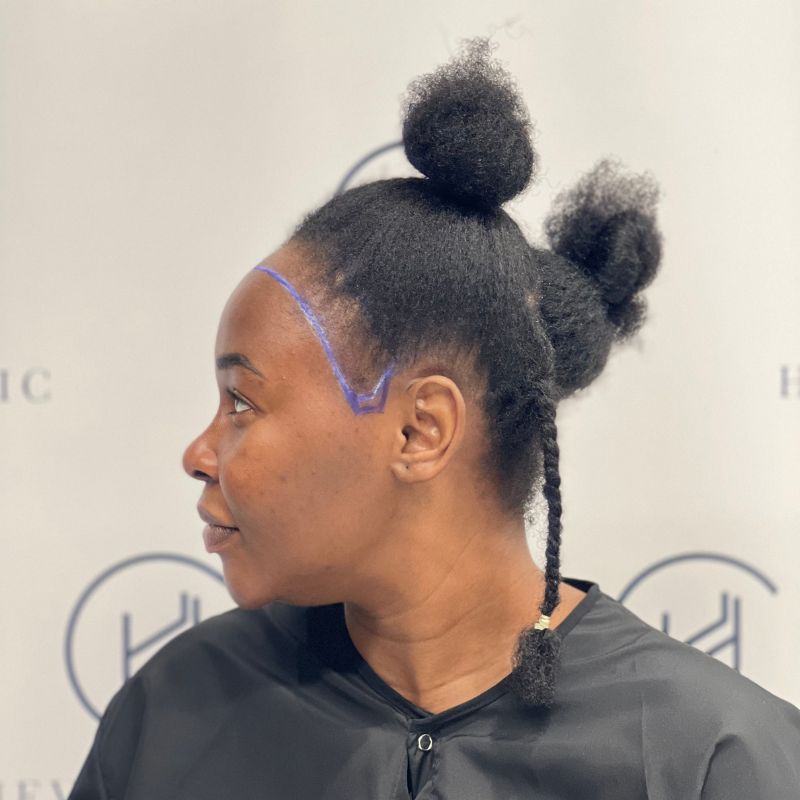
How To Prevent Hair Loss From Relaxers
To avoid negative hair-relaxing side effects, apply the following methods:
1. Prep Your Hair
One of the top methods to prevent your relaxer from causing hair loss is to prep your hair before applying the relaxer. The best way to do this is to loosen and wash your hair a few days before applying the relaxer. This will prevent you from placing too much pressure on your hair on a relaxer day.
2. Protect Your Scalp
Getting relaxers on your scalp can lead to irritation, so you must protect it before applying relaxers. You can do this by using a layer of petroleum jelly as a protective layer to avoid sustaining damage from the chemicals in the relaxer.
3. Avoid Double Processing
Double processing involves dyeing and relaxing your hair at the same time. This could result in severe scalp damage and hair loss caused by relaxers due to the chemical combination that weaken your hair.
4. Take Proper Care of Your Hair
Hair care refers to creating a hair routine and sticking to it. This routine should include regular wash days weekly or once a month, depending on your hairstyle. On those wash days, ensure you apply shampoos, conditioners, and deep conditioners to strengthen your hair and keep it healthy. Another way to take proper care of your hair is to reduce heat usage on the hair through flat irons and blow dryers. Even when using heat on your hair, apply products that can protect your hair from heat damage. All these methods will prevent your relaxer from causing hair loss.
5. No-lye Relaxers are not Fool Proof
Even if no-lye relaxers are considered safe, they have a slow processing time. This makes it difficult to determine how long you’re to leave them in your hair. In the end, your hair becomes overprocessed, leading to hair loss. Of course, it doesn’t mean that no-lye relaxers are bad for your hair. It only means that it’s best not to leave this type of relaxer in your hair for too long, as they can lead to even more damage than lye relaxers.
6. Don’t Relax Your Hair Too Often
Relaxers contain strong chemicals that stretch your hair and make it less prone to breakage like natural hair. However, you might experience negative relaxing side effects if you use them too often. This begs the question, “How often should you relax your hair?” It is advisable to relax your hair once every three months or once in every four months. However, this depends on how fast your hair reverts to its natural curly state. So, it’s always best to space the duration between your previous relaxer application and the current reapplication.
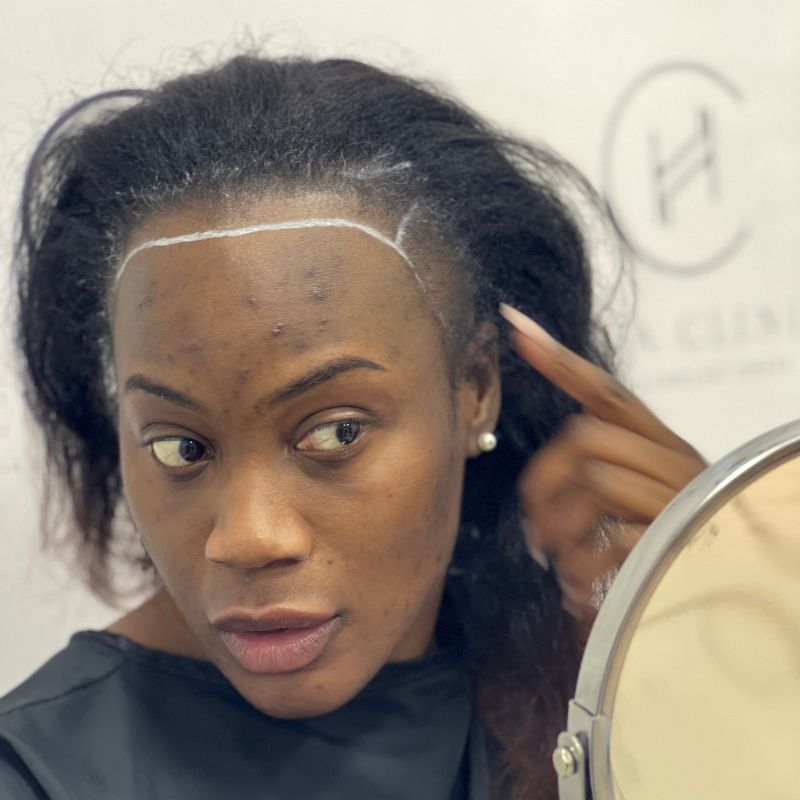
FAQs
Relaxers straighten your natural curl pattern by infiltrating the cuticles and cortex of your hair shaft. A lot of people are worried that relaxers might damage their hair, which is true if recklessly applied to the hair. However, you can still maintain a healthy hair while using these straightening products by reducing how often you apply them yearly and spacing the reapplication duration.
Generally, no-lye relaxers are not bad for your hair. They are even considered the safer relaxer option because they have a lower pH and are less irritating on the scalp. However, they can still cause damage to the hair by leaving mineral deposits in the hair and leading to overprocessed hair if left on for too long.
Once you stop relaxing your hair, it reverts to its natural curly state. But this isn’t always a bad thing. Going natural could make your hair stronger and healthier. Besides this, your hair gains more elasticity because it hasn’t been chemically tampered with.
Conclusion
Despite the benefits people get from relaxers, there’s no doubt that relaxers may cause hair loss. However, this doesn’t happen in all situations, as there are other underlying factors that cause hair loss. These include poor hair care, stress, and medical conditions. Knowing these causes go a long way to help you apply the proper steps to avoid hair loss from relaxers. This way, you get to see your hair grow and flourish into the best it has ever been.
Heva Clinic can help you stop hair loss after relaxer
